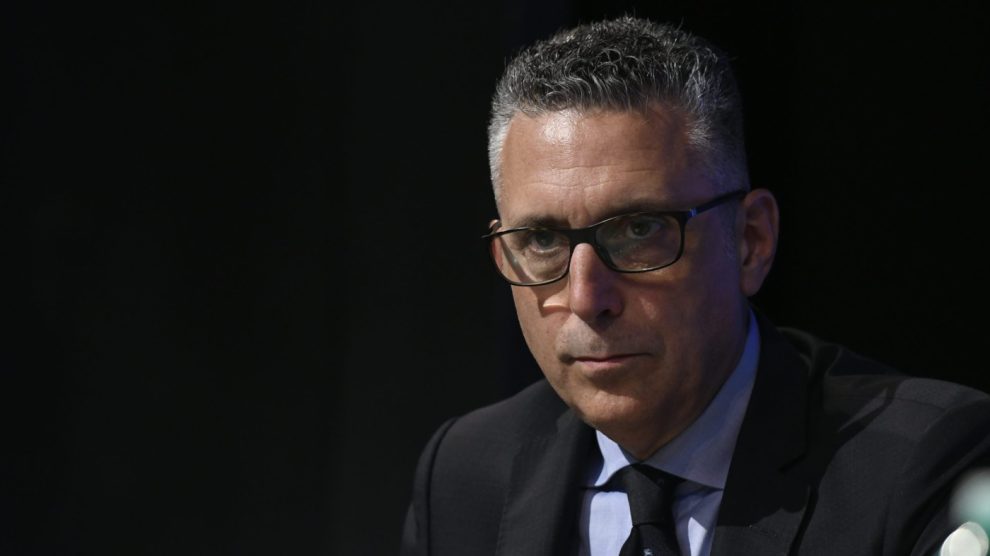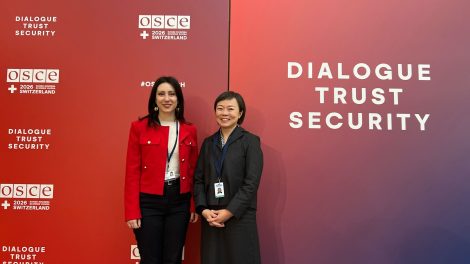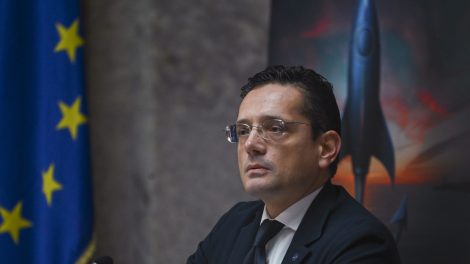Linking the Indo-Med even before IMEC. Over the past months, Sparkle, Tim Group’s global operator, has been working to deploy undersea internet cables from Italy to Israel across the Mediterranean. That BlueMed system is slated to connect to another branch, Raman, which will run from Israel to India across several Middle Eastern States.
- The entire system is designed to provide the digital infrastructure to connect Europe to the Indo-Pacific area – and construction began well before the India-Middle East-Europe Economic Corridor project (IMEC) was unveiled at the G-20 Summit in New Delhi.
A strategic digital outreach. In an interview with our sister website, Sparkle’s CEO Enrico Bagnasco noted the company’s aim was to create new infrastructure “that would expand our data traffic availability on the Middle East route – by building a new route, not [adding] another lane of an existing data highway. That is why we opted for a different route than all the other cables that take that Red Sea route.”
- The project’s strategic dimension is one of the reasons why the current and former Italian governments have been supporting it, he explained. Both Raman and BlueMed – which is “ideally positioned to connect many North African countries” – can “turn Italy into the Mediterranean’s digital hub.”
- It’s not just a matter of technology or operational capacity, he added. “Paradoxically, the distinctive features of Blue-Raman (such as the passage through Israel and not Egypt) are indeed an important element from an architectural and commercial point of view, but they can also become a point of focus during implementation.”
Diversification as defence. In 2022 Sparkle signed a Memorandum of Understanding with the Italian Navy for the protection of submarine cables, which are of crucial strategic importance as the backbone of the international data infrastructure. There are several threats facing them, as Mr Bagnasco explained; the most typical are unintentional human-caused incidents, such as anchors or trawl nets dragging along the bottom and severing the cables.
- “Then there is the issue of sabotage, also in the light of the international context we are experiencing. And there are natural events, such as an underwater earthquake,” he said, noting that diversification “is a way of inherently protecting oneself.”
- As he explained, the French city of Marseille has attracted many intercontinental cables over the years, making it a crucial connection hub as well as an increasingly dangerous single point of failure.
- “That is why there is an interest, also at the European level, in setting up a general strategy to provide Europe with alternative routes.”
Linking Africa. Amid growing international attention towards the Global South, the African Union is becoming a G-20 member and will be invited to the G-7 in 2024 by Italy. Rome will hold the rotating presidency, has vowed to prioritise the continent’s development within the G-7 and is weeks away from unveiling its “Mattei Plan” cooperation model. Africa is also a priority for Sparkle, which envisions the BlueMed system branching out to reach several Northern African countries.
- The company has had “an established relationship with North Africa for a very long time,” explained Mr Bagnasco, noting that the continent, “now our third focus of interest after the Middle East-Far East corridor and the Central-South America corridor, is set to become even more important” in Sparkle’s 10-year plan.
- However, “given its size, Africa must be approached selectively,” he warned. “We recently signed an agreement with the Emirati company Kush Investments to provide a long-term solution in the Blue-Raman cable system to connect Djibouti with Europe.”
- He also cited the recently launched Equiano cable (connecting Cape Town to Lisbon) and Sparkle’s 2022 agreement with Nigerian operator Ciudad to enhance the latter’s international connectivity.





